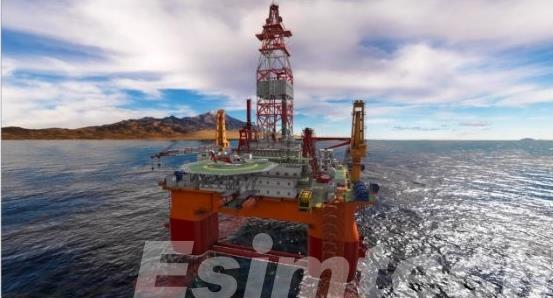Navigating the Waves of Automation: Offshore Drillers in the Age of Automation

Offshore drilling has long been a cornerstone of the global energy industry, powering economies and meeting the world's growing demand for hydrocarbons. However, as technological advancements continue to revolutionize the sector, the role of offshore drillers is undergoing profound changes. The rise of automation and robotics is reshaping offshore drilling operations, presenting both challenges and opportunities for the workforce. This article delves into how automation and robotics are impacting offshore drillers, exploring the potential for job displacement and avenues for upskilling in this evolving landscape.
Automation in Offshore Drilling
Advances in automation and robotics have ushered in a new era of efficiency and safety in offshore drilling operations. From autonomous drilling rigs to remotely operated vehicles (ROVs) and unmanned aerial vehicles (UAVs), automation technologies are increasingly prevalent across the offshore drilling industry. Key areas where automation is making an impact include:
Drilling Operations: Automated drilling systems leverage sensors, algorithms, and real-time data analytics to optimize drilling processes, enhance precision, and minimize downtime. Autonomous drilling rigs equipped with intelligent control systems can adjust drilling parameters in response to subsurface conditions, improving efficiency and wellbore integrity.
Inspection and Maintenance: Robotics and remotely operated vehicles (ROVs) are deployed for inspection, maintenance, and repair tasks in offshore environments. These robotic systems enable safer and more cost-effective inspections of subsea infrastructure, pipelines, and wellheads, reducing the need for human intervention in hazardous environments.
Data Analytics and Decision Support: Automation technologies facilitate the collection, analysis, and visualization of vast amounts of data from offshore drilling operations. Machine learning algorithms and artificial intelligence (AI) tools enable predictive maintenance, anomaly detection, and decision support, enhancing operational efficiency and asset reliability.
Impact on Offshore Drillers
The integration of automation and robotics in offshore drilling operations has significant implications for the role of offshore drillers. While automation offers the potential for improved safety, efficiency, and cost-effectiveness, it also raises concerns about job displacement and the future of offshore drilling careers. Key considerations include:
Job Displacement: Automation technologies have the potential to automate routine tasks traditionally performed by offshore drillers, such as manual drilling operations, equipment maintenance, and data analysis. As a result, there is a risk of job displacement for some segments of the offshore drilling workforce, particularly for roles that are repetitive or low-skilled.
Upskilling Opportunities: Despite the potential for job displacement, the adoption of automation also creates opportunities for upskilling and reskilling within the offshore drilling industry. As automation technologies become increasingly integrated into offshore drilling operations, there is a growing demand for skilled workers who can operate, maintain, and troubleshoot automated systems. Upskilling initiatives focused on digital literacy, data analytics, robotics, and automation can empower offshore drillers to adapt to evolving job requirements and remain competitive in the workforce.
Conclusion
In the age of automation, offshore drillers are navigating a rapidly evolving landscape characterized by technological innovation and digital transformation. While automation presents challenges in terms of potential job displacement, it also offers opportunities for upskilling and career advancement. By embracing automation technologies and investing in workforce development initiatives, the offshore drilling industry can foster a skilled workforce capable of harnessing the full potential of automation while ensuring safety, efficiency, and sustainability in offshore operations. As offshore drillers adapt to the changing demands of the industry, collaboration between industry stakeholders, educational institutions, and policymakers will be essential to support the workforce transition and drive continued innovation in offshore drilling.
- Art
- Causes
- Crafts
- Dance
- Drinks
- Film
- Fitness
- Food
- Spiele
- Gardening
- Health
- Home
- Literature
- Music
- Networking
- Other
- Party
- Religion
- Shopping
- Sports
- Theater
- Wellness


